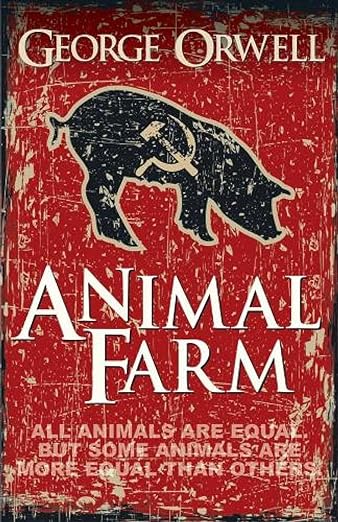
So, I had been meaning to read this book for years now. Especially, because the idea of animals running a farm like they'd run the world seemed so groundbreaking. I was genuinely thrilled to grab it on Audible and completed it in five sittings.
As I delved into the story, I found the essence of the narrative revolving around the impossibility of achieving true equality in society. The concept of leadership vs dictatorship was so extensive, reflecting on political theories regarding the origin of the state and monarchy. The whole idea of a king or state emerged as citizens empowered a leader to make decisions on their behalf is so current world scenario.
The book serves as a powerful critique of capitalism and the depiction of the pigs, once wise leaders, accumulating wealth and exploiting the labor of other animals, mirrors the dynamics of a capitalist system. The Animalism flag resembling the Soviet flag adds another layer to the allegory.
Among the animals, Boxer and the sheep blindly follow the Pigs, but it's Clover who identifies the irregularities in the commandments. The Pigs, mirroring propaganda tactics, gradually hoard wealth, manipulate the subjects, and create a hierarchy. The tactics used by Napoleon, blaming Snowball for any wrongdoing, draw parallels to propaganda in the context of the USA and Russia during the war.
The story concludes with a chilling act of slaughter, instilling terror and paving the way for hereditary and class differentiations. The pigs, once champions of equality, evolve into a ruling class, mirroring the very men they sought to differentiate from.
While the narrative hints at similarities with Russia's communism, I acknowledge the need to explore more about Russia to form an opinion that is conclusive. Nevertheless, the book left a profound impact, especially considering its timing during World War II and its alignment with the anti-communist propaganda of the era. Now, my curiosity is piqued, and I'm eager to delve deeper into the history of Russia.
